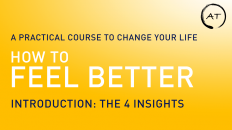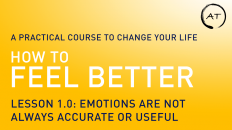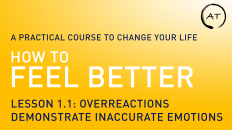Emotions aren’t always appropriate, especially when they react to the past instead of to the present.
From before, we learned that emotions are memory associations. They are shortcuts our mind makes to keep us alive.
Emotions tells us that a feeling is associated with an event. Every emotion is, therefore, a reaction to the past. Even new emotions come from associating what just happened with how you feel.
Now, we’re going to have to go into the weeds to explain emotions as reactions to the past.
An emotion tells you that you can expect a feeling when something like the emotion’s event happens. The key word is expect. Fear is an emotion. Fear is expected pain. Pain is a physical sensation. Pain is a physical reality. If there is a knife in you side, it does hurt.
Fear, on the other hand, is not physical. Fear is an expectation of pain. Fear is emotional pain and emotional pain is not reality.
An emotion has a purpose. The purpose is to protect you from the expected feeling. Emotions are not physical sensations. Emotions are expectations. Expectations have to predict the future based on the past. Therefore, emotions are reactions to the past.
This means that your emotions may not be accurately predicting the future. Your mind is telling you that the future will be like the past, but it doesn’t actually know what will happen. How could your mind know the future?
Here’s an example of reacting to the past inappropriately:
Growing up, my brother would always squeeze my hand really hard when we shook hands. He would ask for a handshake, then painfully squeeze my hand like he was juicing an orange.
Today as I go into a business meeting, Margaret, the CEO, reaches out to grab my hand. I’m terrified she’s going to crush my hand, so I flinch.
Obviously, no one in business is going to crush your hand. I’m reacting to my brother twelve years ago, instead of reacting to Margaret. Margaret has been kind over the phone and wants to do business with me. I can only hope she didn’t notice how I flinched when I shook her hand.
Bottom line: my reaction to the past was inappropriate and not useful.
It makes sense. Unless you’re clairvoyant, you can’t predict the future. What’s also tricky and more difficult is when your emotion is a reaction to an incorrect assumption.


